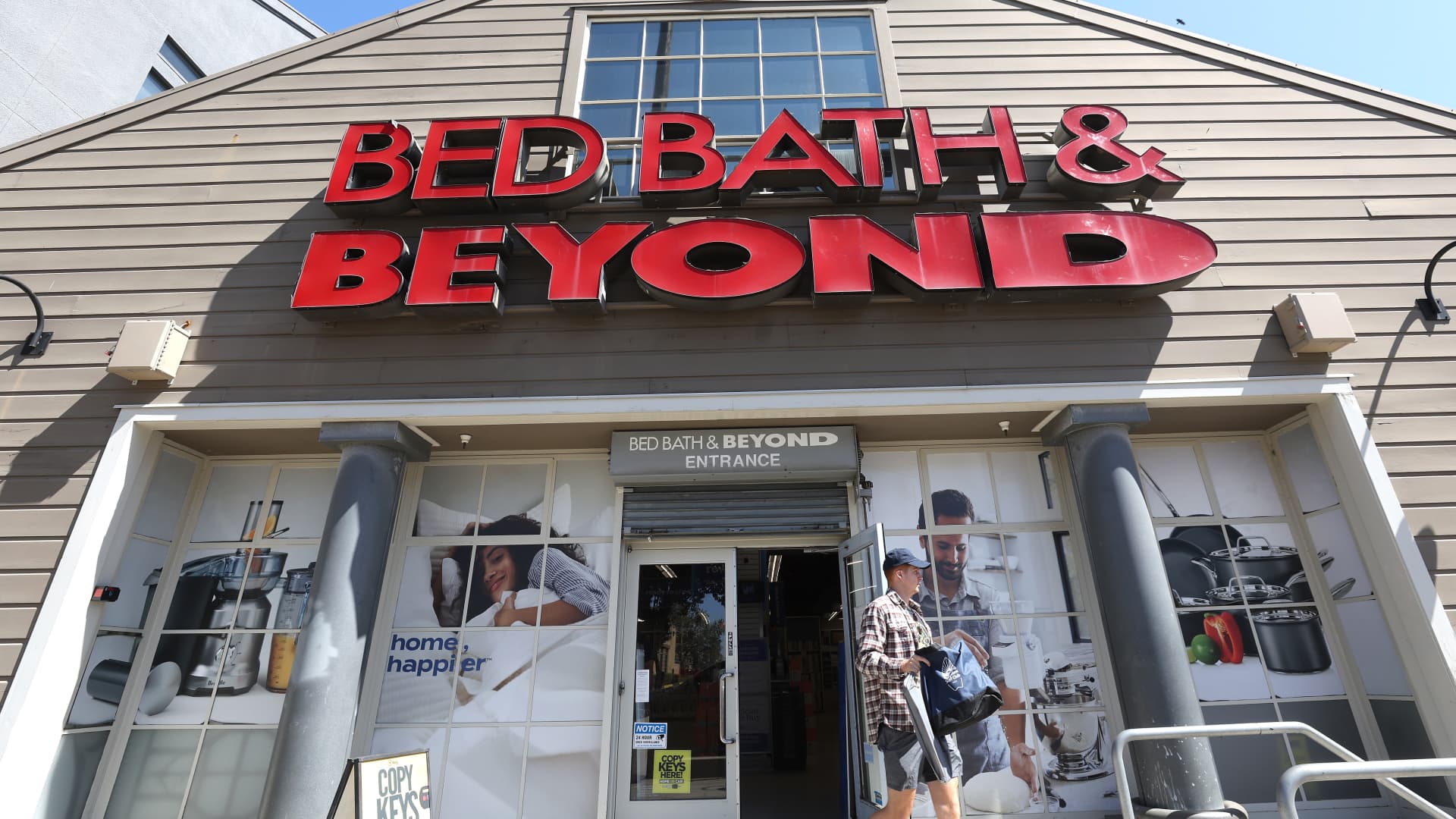
A customer leaves a Bed, Bath and Beyond store on August 31, 2022 in Oakland, California.
Justin Sullivan | Getty Images
Bed Bath & Beyond wants shareholders to approve a reverse stock split at an upcoming special meeting, as the retailer keeps working to avoid filing for bankruptcy, according to a securities filing late Wednesday.
The retailer’s board is calling on shareholders to approve the reverse stock split at the May 9 meeting so it can have enough shares available to raise up to $300 million in equity from a stock offering announced last week.
Bed Bath’s fundraising efforts have been hampered by its dwindling stock price, which has been on a precipitous decline and has been trading under $1 for the last few weeks. Shares of Bed Bath were trading around 30 cents Thursday morning, giving the company a market value of about $132 million.
The company is concerned that if the plan isn’t completed, it likely won’t have enough equity to pay its debts and keep its doors open, the company said in the filing.
“The Company may be unable to avoid bankruptcy if the Reverse Split Proposal fails to obtain shareholder approval. We need to raise equity capital to have the necessary cash resources to fund operations and service obligations under our Credit Agreement,” the filing says.
The beleaguered retailer said the reverse stock split would be at a ratio, to be determined by the board, in the range of 1-for-10 to 1-for-20. If the split is approved, it would significantly reduce the number of outstanding shares of common stock available, which will allow it to issue enough stock to cover the terms of the offering.
The reverse split could also boost Bed Bath’s per-share price, which the company expects could improve perception of its stock and attract more investors.
“We believe a higher share price could make our Common Stock more attractive to a broader range of investors, as we believe that the current market price of our Common Stock may affect its acceptability to certain professional investors and other members of the investing public,” the filing says.
“In particular, we believe that an increased share price would enable us to attract additional institutional investors and investment funds who may not consider purchasing our Common Stock due to our low trading price.”
Still, even if the reverse split temporarily boosts Bed Bath’s share price, the stock offering will eventually dilute it, which happened after the company announced another stock offering in February.
The home goods retailer has been warning of bankruptcy since January after a series of dismal quarters depleted the company’s liquidity and left it clinging to life.
On Wednesday, it announced a $120 million lifeline provided by liquidator Hilco Global so it can get inventory back on its shelves in a last ditch effort to improve sales.
–CNBC’s Jesse Pound contributed to this report.







